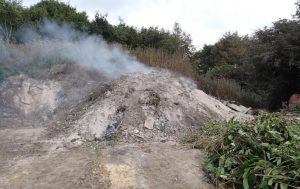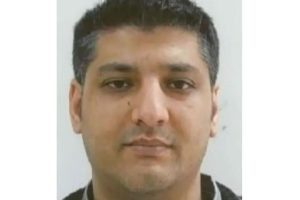Money launderers jailed for £1m fraud after Yorkshire-based investigation

Five people who laundered over £1m proceeds of bogus computer service companies have been sentenced to nine and a half years imprisonment at Leeds Crown Court.
They laundered money which companies had conned from victims, many of whom were elderly and vulnerable.
The sentences follow an investigation led by the National Trading Standards eCrime Team, based at City of York Council and North Yorkshire Council, supported by officers from West Midlands, Staffordshire and Wiltshire police services.
Between May 2015 and November 2019, Amanda Grigg, 66, of Truro, Cornwall, Jose Kuriakose (50) of Deal, Kent, Gena Harrington (39) of Handsworth, Birmingham, Bindu Devasia (49) of Deal, Kent, and Nicholas Alcide (40) of Birmingham, transferred over £1,289,837 to two India-based brothers behind a network of companies posing as well-known firms (including HP, Microsoft Norton, and Epson) to defraud consumers.
The fake companies posted adverts online to lure victims before leading them to believe there were issues with their computers, when in fact there were not.
Victims were told false problems could be fixed for a fee and were persuaded into allowing remote access to their computers.
The group laundered the money via a series of UK-based firms which only existed to receive payments from consumers, before forwarding it on to the fraudsters in India.
They set themselves up as company directors and, in return, kept a percentage of the money for themselves.
One victim paid a total of £4,427.96 to people who he believed worked for HP to resolve a supposed issue with his computer.
Someone calling himself Henry, posing as an HP representative, informed him his computer had been hacked and demanded an immediate payment of £803.98 to fix it.
The victim agreed to send a cheque the next day. Despite not noticing any other issues the victim received numerous calls informing him there were further issues with his computer and he was persuaded to make additional payments.
The cycle of calls persisted for several months until he grew suspicious and made a report to Trading Standards. The sentences handed down were as follows:
- Amanda Grigg – three years imprisonment, disqualified from being a company director for six years.
- Jose Kuriakose – 50 months’ imprisonment, disqualified from being a company director for six years.
- Gena Harrington – 30 months’ imprisonment, disqualified from being a company director for six years.
- Bindu Devasia – eight months’ imprisonment, suspended for two years. Disqualified from being a company director for six years and ordered to complete 150 hours of unpaid work.
- Nicholas Alcide – 15 months’ imprisonment, suspended for two years. Disqualified from being a company director for two years and ordered to complete 150 hours of unpaid work.
Grigg, Harrington, Devasia, Alcide and Kuriakose were found guilty of entering into a money laundering arrangement contrary to the to the Proceeds of Crime Act 2002.
A further defendant will be sentenced later, following a Newton Hearing, and another faces trial separately in 2025.
Lord Michael Bichard, chair of national trading standards, said: “This group of money launderers had no qualms about enriching themselves off the back of vulnerable and elderly victims – deviously setting up a vast web of companies to hide their criminality.
“I hope the sentences handed down will serve as a powerful reminder to all money launderers that they risk prosecution – regardless of how well-coordinated their operations may seem.”
Mike Andrews, the national co-ordinator for the National Trading Standards eCrime Team, said: “Whilst the defendants in this case weren’t directly responsible for the fraud, they helped make it happen, and facilitated its wider effect, so more victims suffered than should have done.
“Many of those victims were deeply affected by what happened and lost money they couldn’t afford.”
Ruth Andrews, regional investigations & eCrime team manager at City of York Council, said: “This case demonstrates that those who assist the main offenders, taking a hands-off approach to the fraud and turning a blind eye – despite their suspicions and multiple warning flags – will still be brought to justice.
“Without these defendants the fraud would not have worked, as their laundering of the proceeds of the offending was an essential element from which they also personally benefited.”








